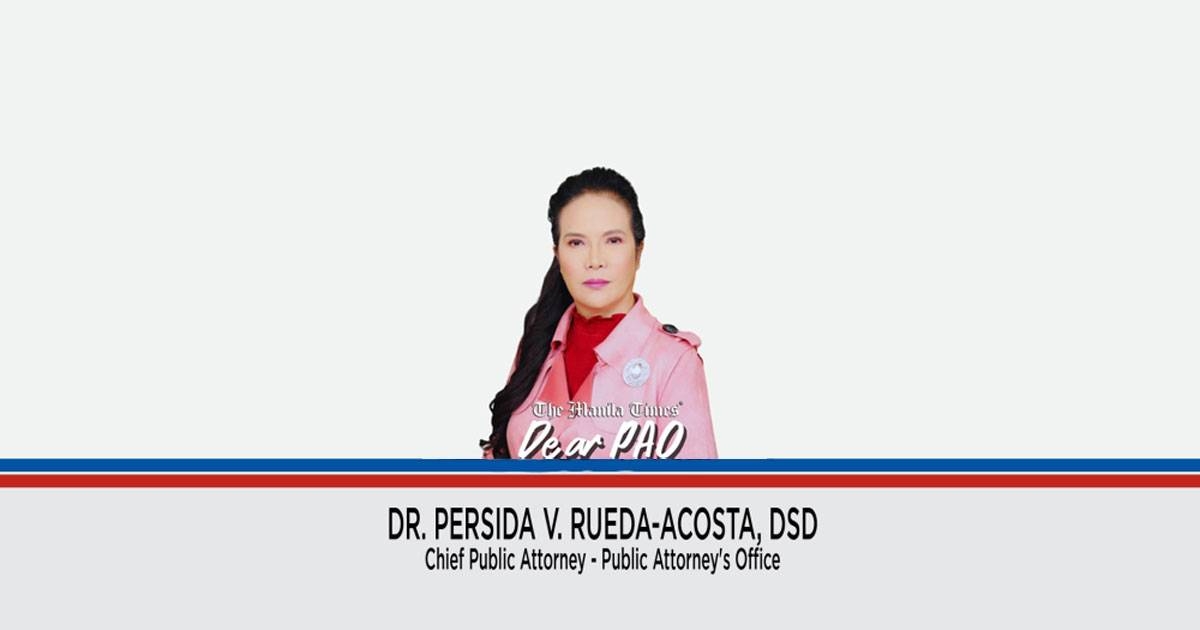
WHO MAY BE DEPORTED?
Dear PAO,
Can a Filipino citizen be the subject of a deportation proceeding here in our country?
Rubilyn
Dear Rubilyn,
The answer to your question is no. To elucidate this point, allow me to lead your attention to our pertinent rules and jurisprudence.
Succinctly, Sections 1 to 3 of Rule II of Immigration Memorandum Circular SBM-2015-010, Nov. 3, 2015, otherwise known as the Bureau of lmmigration's Omnibus Rules of Procedure of 2015, define deportation and dictates who may be deported, viz.:
"Section 1. Deportation defined. – Deportation is an act by or under the authority of the State of removing a foreigner from Philippine territory. It applies to a foreigner whose presence in the Philippines is found to be injurious to national interest, public health, public safety and public interest.
"Section 2. Nature and Conduct. – Deportation proceedings are administrative in character. Subject to the requirement of due process, the deportation proceedings shall be conducted for the purpose of ascertaining the truth without necessarily adhering to technical rules of judicial proceedings.
"Section 3. Who may be Deported. – An action for deportation may be commenced by a verified complaint in the name of a private citizen or the Republic of the Philippines against any foreigner for grounds as provided for by relevant laws. (Emphasis and underscoring supplied)
The foregoing provisions of law unequivocally say that deportation applies to a foreigner, i.e., an act by or under the authority of the State of removing a foreigner from Philippine territory whose presence in the Philippines is found to be injurious to national interest, public health, public safety, and public interest.
Pertinent to the foregoing, in the recent case of Prescott v. Bureau of Immigration (GR 262938, Dec. 5, 2023), penned by then-Associate Justice Amy Lazaro-Javier, the Supreme Court said that deportation proceedings don't apply to a Filipino citizen, thus:
"To be sure, the power to deport is limited to aliens only. If the respondent to a deportation proceeding is admittedly a citizen or conclusively shown to be such, the bureau lacks jurisdiction and its proceedings are void ab initio and may be summarily enjoined." (Emphasis and underscoring supplied)
Applying the foregoing, the state's power to deport is limited to an alien and not to a Filipino. Be that as it may, it goes without saying that when a Filipino is abroad and considered a foreigner or an alien of that country, then he or she may be a subject of deportation in such country pursuant to the latter's statutes.
We hope that we were able to answer your queries. This advice is based solely on the facts you have narrated and our appreciation of the same. Our opinion may vary when other facts are changed or elaborated on.
Editor's note: Dear PAO is a daily column of the Public Attorney's Office. Questions for Chief Acosta may be sent to [email protected]
2024-07-02T16:17:29Z dg43tfdfdgfd